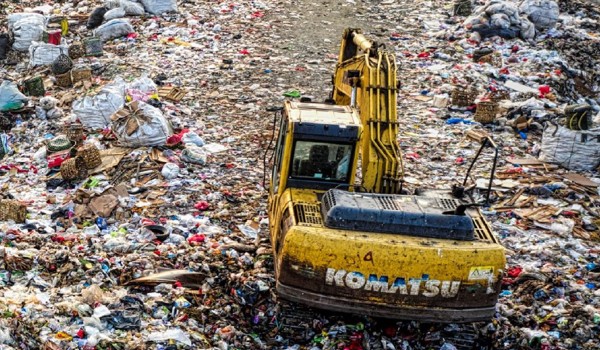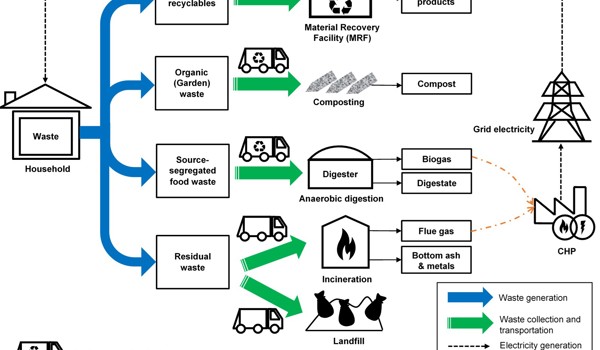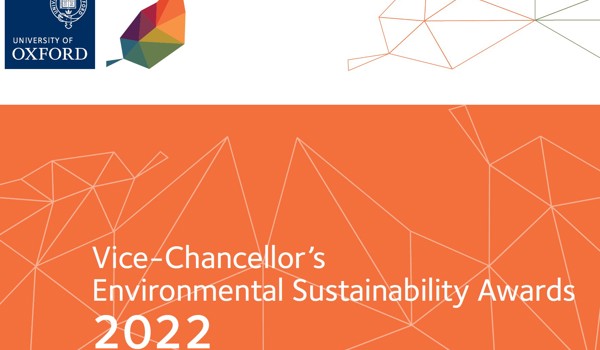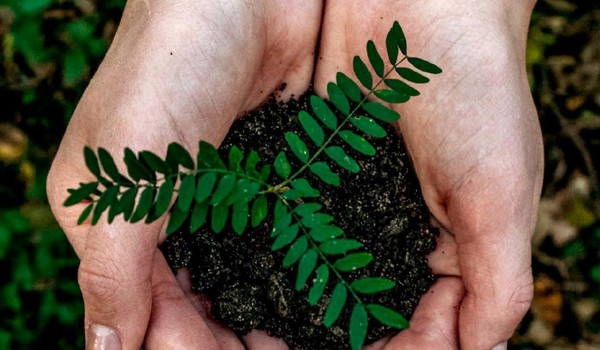18 Jul 2020
A systems thinking approach to stimulating and enhancing resource efficiency and circularity in households
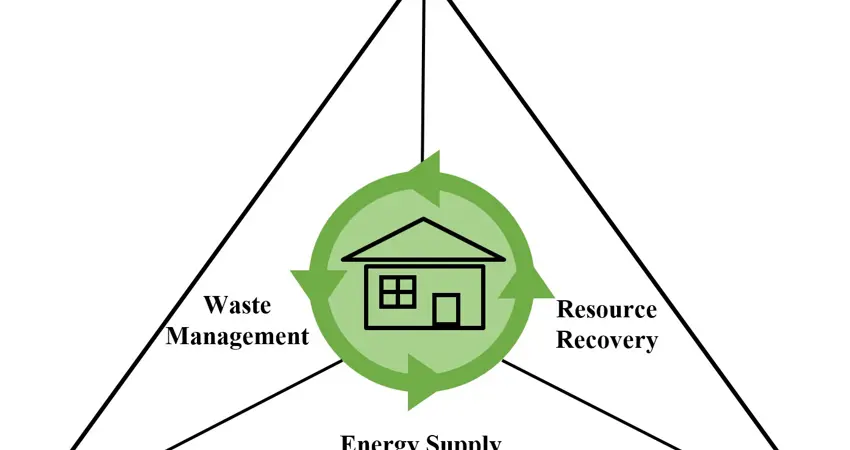
Dr Kok Siew Ng (University of Oxford) and Dr Long Seng To (Loughborough University) have recently published a paper entitled “A systems thinking approach to stimulating and enhancing resource efficiency and circularity in households” in the Journal of Cleaner Production.
Households are highly resource intensive in terms of energy consumption and waste generation, and resource utilisation and management in households has wider implications at the national level. This paper applies systems thinking approach at the household level for the first time. The approach takes into consideration energy supply and demand, waste management and resource recovery from waste in a single system. Combining energy and waste management analysis enables better understanding of the systems at household level and can address resource efficiency, fuel poverty and environmental issues more effectively at the national level. This study adopts the Systems Thinking Approach to Resource Recovery (STARR) framework to identify the potential improvements that can be made within the system. Three models of households on energy and waste management, including “waste-and-energy”, “waste-to-energy” and “reduced consumption” models, are examined through assessments of economic, environmental and social dimensions. These models are further explored through different scenarios, by considering the adoption of renewable solar photovoltaic (PV) energy supply, increasing recycling rate, integrating energy from waste into household and reducing consumption of resources and waste generation. The scenario with the least environmental impact involves adopting a concerted approach through switching to solar PV, increasing recycling rate and using electricity generated from residual waste, with global warming potential (GWP) of −1308 kg CO2-equivalent per year and total saving/income of £680 per year, on a one household basis.
Highlights
- Three integrated household energy supply and waste management models were analysed.
- Systems thinking approach improves resource efficiency in households.
- Economic, environmental and social assessments consolidated recommendations.
- Switching to solar PV offers significant GHG reduction and cost savings.
- Further benefits can be attained by increasing resource recovery from waste.
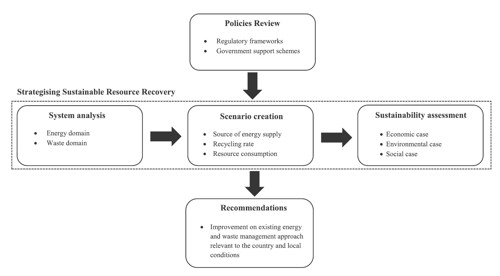
Systems Thinking Approach to Resource Recovery (STARR) Framework
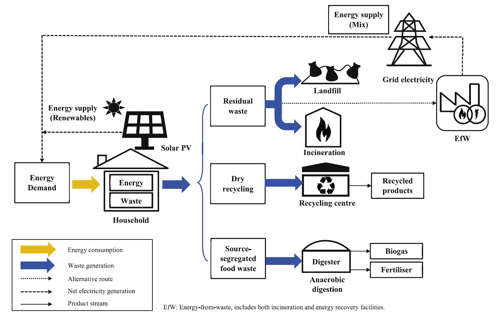
Household systems thinking mind map
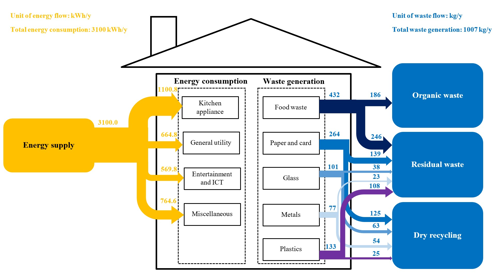
Material flow analysis showing energy consumption and waste generation per household basis
The SYNERGORS Project
The SYNERGORS project (“A systems approach to synergistic utilisation of secondary organic streams”), funded by the Natural Environment Research Council (NERC), is led by Dr Kok Siew Ng from the Department of Engineering Science, University of Oxford. This project aims to develop new systems approaches and decision-making tools for promoting resource recovery from secondary organic waste streams including fossil- (e.g. used plastics) and biomass-derived waste (e.g. food waste, residual biomass).
SYNERGORS will provide significant insights into various options for organic waste reduction and utilisation, and propose viable business models to attract stakeholders in the commercial sectors to invest in these areas. Furthermore, the research will address various socio-environmental challenges faced by human and living communities, the rising global demands in energy and commodities, and lessening burdens on the landfill, water and atmosphere.
It is envisaged that the outcomes from this project (e.g. decision-making tool and roadmap) can be adopted in the UK and other developing countries in improving the policies and practices in relation to organic waste management. The objectives of the project are well aligned with the UK Industrial Strategy in enhancing resource efficiency while achieving a sustainable industrial growth and a more resilient economy. The project has received support from a number of UK and international organisations (academia, industry and government), providing multidisciplinary expertise to address the global challenges in waste management.
Acknowledgement
This work was supported by the Natural Environment Research Council (NE/R012938/1) through the UKRI/NERC Industrial Innovation Fellowship Programme.
Further information
Please contact Dr Kok Siew Ng (kok.ng@eng.ox.ac.uk) if you are interested in learning more about the project.

